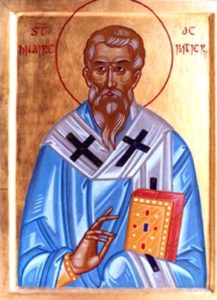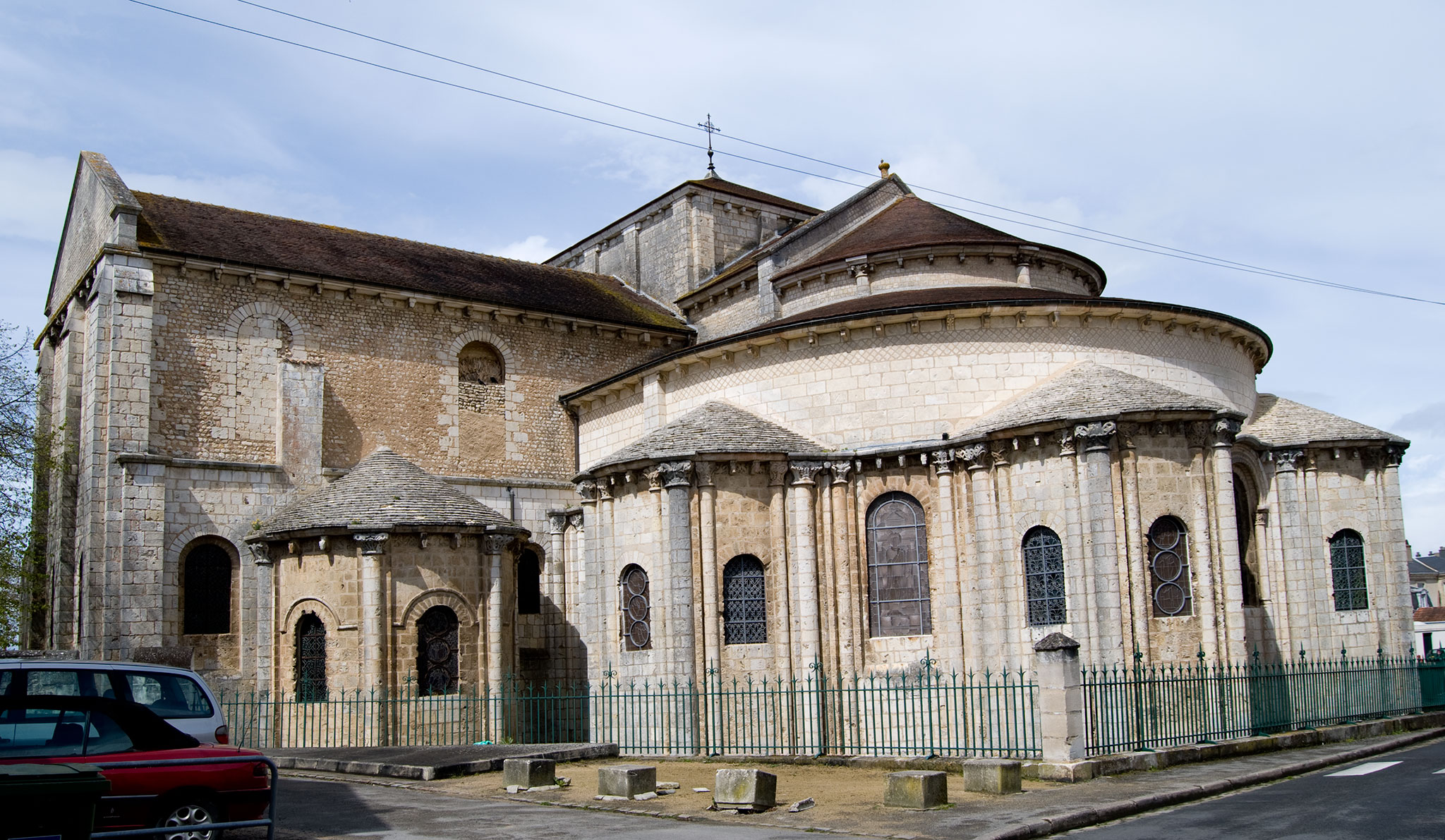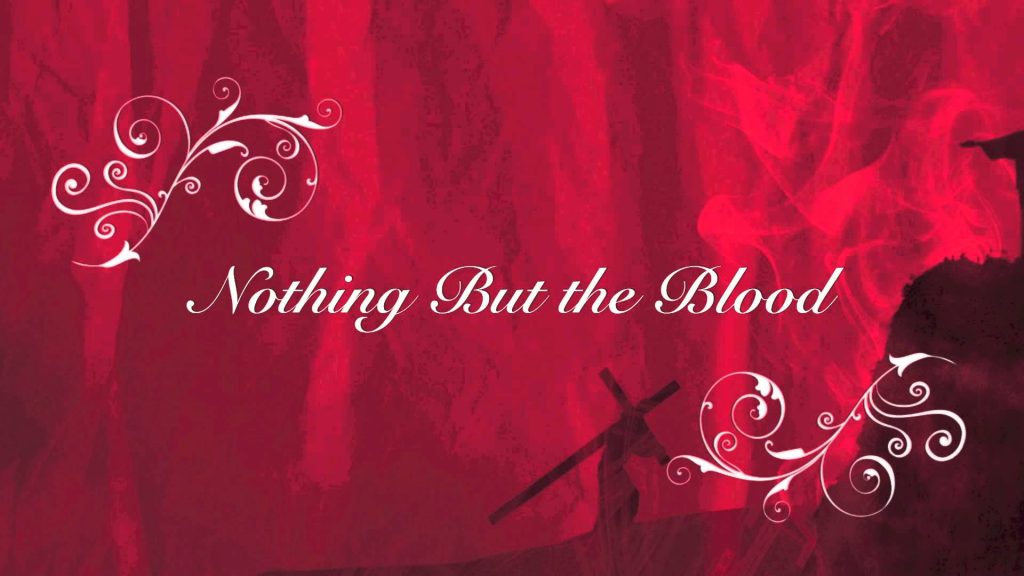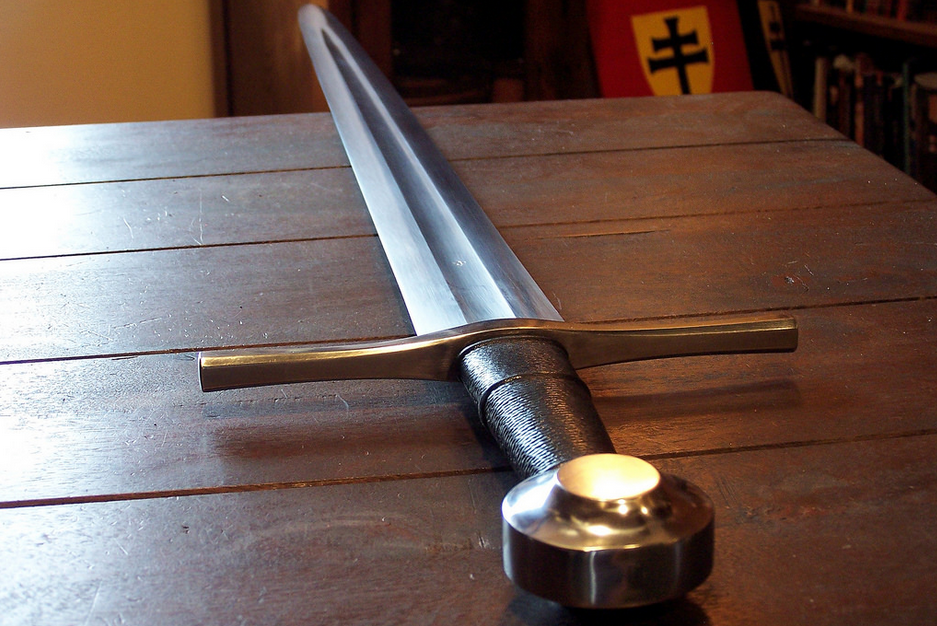Editor’s Note: St. Hilary of Poitiers was an early church father, and is considered a Saint by the Roman Catholics, Eastern Orthodox, and several of the more liturgical Protestant churches. He lived and worked in the first half of the 4th Century. Note that he used the Septuagint for his work, and that source numbers many of the Psalms differently than most of our Bibles. In the Septuagint, he is discussing Psalm 130, but it will be Psalm 131 in most Bibles. This also speaks to why he refers to the “Greek” in the sermon, as the Septuagint was the Greek translation of the Old Testament.

O Lord, my heart is not exalted, neither have my eyes been lifted up.
- This Psalm, a short one, which demands an analytical rather than a homiletical treatment, teaches us the lesson of humility and meekness. Now, as we have in a great number of other places spoken about humility, there is no need to repeat the same things here. Of course we are bound to bear in mind in how great need our faith stands of humility when we hear the Prophet thus speaking of it as equivalent to the performance of the highest works: O Lord, my heart is not exalted. For a troubled heart is the noblest sacrifice in the eyes of God. The heart, therefore, must not be lifted up by prosperity, but humbly kept within the bounds of meekness through the fear of God.
- Neither have My eyes been lifted up. The strict sense of the Greek here conveys a different meaning; οὐδὲ ἐμετεωρίσθησαν οἱ ὀφθαλμοί μου, that is, have not been lifted up from one object to look on another. Yet the eyes must be lifted up in obedience to the Prophet’s words: Lift up your eyes and see who has displayed all these things. Isaiah 40:26 And the Lord says in the gospel: Lift up your eyes, and look on the fields, that they are white unto harvest. John 4:35 The eyes, then, are to be lifted up: not, however, to transfer their gaze elsewhere, but to remain fixed once for all upon that to which they have been raised.
- Then follows: Neither have I walked amid great things, nor amid wonderful things that are above me. It is most dangerous to walk amid mean things, and not to linger amid wonderful things. God’s utterances are great; He Himself is wonderful in the highest: how then can the psalmist pride himself as on a good work for not walking amid great and wonderful things? It is the addition of the words, which are above me, that shows that the walking is not amid those things which men commonly regard as great and wonderful. For David, prophet and king as he was, once was humble and despised and unworthy to sit at his father’s table; but he found favour with God, he was anointed to be king, he was inspired to prophesy. His kingdom did not make him haughty, he was not moved by hatreds: he loved those that persecuted him, he paid honour to his dead enemies, he spared his incestuous and murderous children. In his capacity of sovereign he was despised, in that of father he was wounded, in that of prophet he was afflicted; yet he did not call for vengeance as a prophet might, nor exact punishment as a father, nor requite insults as a sovereign. And so he did not walk amid things great and wonderful which were above him.
- Let us see what comes next: If I was not humble-minded but have lifted up my soul. What inconsistency on the Prophet’s part! He does not lift up his heart: he does lift up his soul. He does not walk amid things great and wonderful that are above him; yet his thoughts are not mean. He is exalted in mind and cast down in heart. He is humble in his own affairs: but he is not humble in his thought. For his thought reaches to heaven, his soul is lifted up on high. But his heart, out of which proceed, according to the Gospel, evil thoughts, murders, adulteries, fornications, thefts, false witness, railings Matthew 15:19, is humble, pressed down beneath the gentle yoke of meekness. We must strike a middle course, then, between humility and exaltation, so that we may be humble in heart but lifted up in soul and thought.
- Then he goes on: Like a weaned child upon his mother’s breast, so will you reward my soul. We are told that when Isaac was weaned Abraham made a feast because now that he was weaned he was on the verge of boyhood and was passing beyond milk food. The Apostle feeds all that are imperfect in the faith and still babes in the things of God with the milk of knowledge. Thus to cease to need milk marks the greatest possible advance. Abraham proclaimed by a joyful feast that his son had come to stronger meat, and the Apostle refuses bread to the carnal-minded and those that are babes in Christ. And so the Prophet prays that God, because he has not lifted up his heart, nor walked amid things great and wonderful that are above him, because he has not been humble-minded but did lift up his soul, may reward his soul, lying like a weaned child upon his mother: that is to say that he may be deemed worthy of the reward of the perfect, heavenly and living bread, on the ground that by reason of his works already recorded he has now passed beyond the stage of milk.
- But he does not demand this living bread from heaven for himself alone, he encourages all mankind to hope for it by saying: Let Israel hope in the Lord from henceforth and for evermore. He sets no temporal limit to our hope, he bids our faithful expectation stretch out into infinity. We are to hope for ever and ever, winning the hope of future life through the hope of our present life which we have in Christ Jesus our Lord, Who is blessed for ever and ever. Amen.










[…] Source link […]